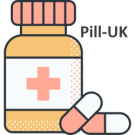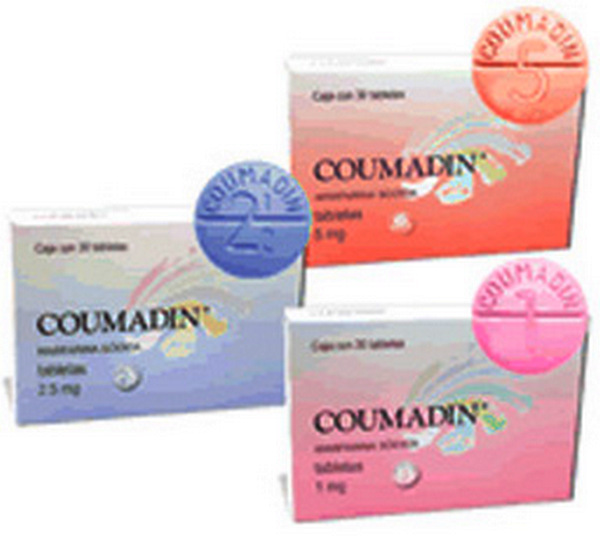What are the dangers of venous thrombosis? If a clot remains in a vessel, a pulmonary embolism occurs, which can be fatal. Coumadin is used to treat and prevent venous thrombosis and pulmonary embolism. We offer you the possibility to buy Coumadin and other medicines without prescription in our online pharmacy, we have the lowest prices in United Kingdom and the fastest delivery!
Where To Buy In United Kingdom
To buy cheap Coumadin, you don’t have to spend a lot of time searching in street pharmacies, but order online with delivery throughout UK. This way, you can always be sure that the medicine you need is in stock and the price is affordable.
Medicines Without Prescription At An Online Pharmacy
We trust our customers, that’s why we are willing to ship medicines without prescription. You can simply pick them up at the post office, discussing the prescription with a specialist first.
Affordable Drug Prices
Pharmacies do not always have affordable prices, so we offer our customers to buy the right medicines at an affordable price. Cheap medicines cannot be found anywhere else, so we recommend saving money and buying them from our online pharmacy.
Anonymity
If you have a health problem, timely treatment will keep you safe from unpleasant consequences. We advise you to consult your doctor and order the right medicine, and we guarantee fast delivery.
What is Coumadin
The drug Coumadin is an anticoagulant and comes in tablet form, with doses of 1 mg, 2 mg and 5 mg. Coumadin is used to treat and prevent blood clots in veins, pulmonary embolism, atrial fibrillation or after heart valve replacement. The main active substance is warfarin, which reduces blood clotting after the first dose within 24 hours; the therapeutic effect occurs 2 to 5 days after the start of treatment.
Indications
Coumadin is indicated for the following diseases and conditions:
- acute venous thrombosis, including recurrences
- pulmonary embolism
- ischaemic attacks
- cerebrovascular accidents
- prevention of myocardial infarction;
- Prevention of thromboembolic complications after myocardial infarction;
- Prevention of thromboembolic complications in patients with atrial fibrillation;
- in cardiac valvular lesions;
- Prosthetic heart valves;
- Prophylaxis of postoperative thrombosis.
Dosage and Administration
The tablets are taken orally with water once daily, preferably at the same time. The INR (coagulation index) is determined before treatment and checked thereafter every 4-8 weeks of treatment.
People taking warfarin for the first time: the initial daily dose is 5 mg for the first 4 days, on the fifth day the maintenance dose depends on the INR and is usually 2.5-7.5 mg per day.
Patients who have previously taken warfarin: initial dose is 5-10 mg daily, followed by 2.5-7.5 mg daily.
Children: initial daily dose of 0.2 mg/kg in case of normal liver function, 0.1 mg/kg in case of impaired liver function. Warfarin should be administered to children by a paediatrician.
Special instructions
There are no specific recommendations for the treatment of elderly patients with warfarin, but they should be followed by a doctor to avoid the risk of side effects.
In patients with liver or kidney disease, INR and body condition should be closely monitored to adjust the dose. People with renal dysfunction should reduce the dose of Coumadin.
People undergoing surgery should discontinue Coumadin 1 to 5 days before surgery, depending on their INR.
Contraindications
Coumadin should not be taken by people with:
- Hypersensitivity to any of the components of the medicinal product;
- Acute bleeding and patients at high risk of bleeding;
- Pregnancy and lactation;
- Thrombocytopenia;
- Severe renal or hepatic disease;
- Acute disseminated intravascular coagulation syndrome;
- protein deficiency;
- intracranial haemorrhage
- Arterial aneurysm;
- oesophageal varices;
- gastric and duodenal ulcers;
- bacterial endocarditis;
- hypertension;
- haemorrhagic stroke.
Side effects
If worrying symptoms occur during treatment, you should stop taking the medicine and contact your doctor. Warfarin treatment may be accompanied by the following symptoms: bleeding in various organs, allergic reactions, nausea, vomiting, diarrhoea, vasculitis, jaundice, increased liver enzymes.
Frequently asked questions
Is an overdose with the medicine possible? There is a risk of minor bleeding during treatment. In milder cases, it may be necessary to reduce the dose or to suspend it for a short period. In case of minor bleeding, warfarin should be stopped until the INR level is reached. In case of severe bleeding, intravenous vitamin K should be administered and activated charcoal should be used.
How many times a day should Coumadin be taken?
Tablets should be taken according to the dosage, once daily.
When does Coumadin start to work?
The effects of warfarin begin within 24 hours after the initial dose. The therapeutic effect is reached 2-5 days after starting treatment with the drug.
How Many Days to Take Coumadin
The duration of treatment depends on the indications for use and the efficacy of the therapy. Treatment usually lasts 5 days or longer; when the desired effect is achieved, the drug can be stopped immediately.
What You Should Not Eat
During treatment with warfarin you should discuss your diet with your doctor; vitamins and synthetic supplements should not be added to your diet. Pay attention to vitamin K intake in food, as it may weaken the effect of warfarin. Foods rich in vitamin K are: dark green leafy vegetables and herbs (green cabbage, spinach, parsley), green tea, legumes, beef liver, mayonnaise.
Before or After Meals
Coumadin can be taken independently of meals.


